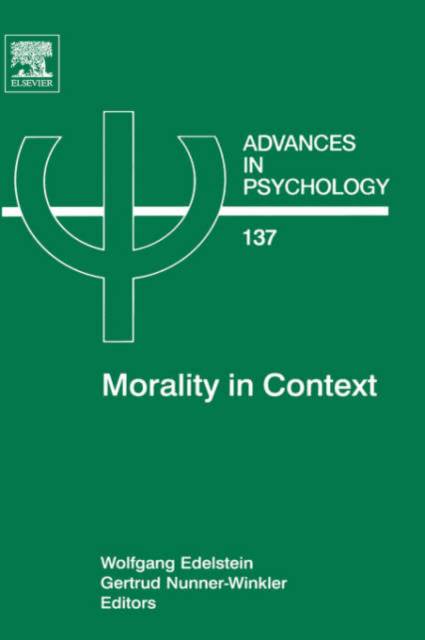
- Afhalen na 1 uur in een winkel met voorraad
- Gratis thuislevering in België vanaf € 30
- Ruim aanbod met 7 miljoen producten
- Afhalen na 1 uur in een winkel met voorraad
- Gratis thuislevering in België vanaf € 30
- Ruim aanbod met 7 miljoen producten
Zoeken
€ 203,95
+ 407 punten
Omschrijving
Morality in context is a timely topic. A debate between philosophers and social scientists is a good way to approach it. Why is there such a booming interest in morality and why does it focus on context? One starting point is the change in the sociostructural and sociocultural conditions of modern societies. This involves change in the empirical conditions of moral action and in the social demand on morality. As these changes are accounted for and analyzed in the social sciences, new perspectives emerge that give rise to new ways of framing issues and problems. These problems are best addressed by way of cooperation between philosophers and social scientists. As Habermas (1990) has pointed out in a much cited paper, philosophers depend on social science to fill in the data they require to answer the questions raised by philosophy in its "placeholder" function. The reverse also holds true: Social science needs the conceptual clarifications that philosophy can provide. With respect to morality, such mutual interchanges are of particular importance the contributions to this book show convincingly.
Specificaties
Betrokkenen
- Uitgeverij:
Inhoud
- Aantal bladzijden:
- 418
- Taal:
- Engels
- Reeks:
- Reeksnummer:
- nr. 137
Eigenschappen
- Productcode (EAN):
- 9780444520784
- Verschijningsdatum:
- 1/08/2005
- Uitvoering:
- Hardcover
- Formaat:
- Genaaid
- Afmetingen:
- 155 mm x 237 mm
- Gewicht:
- 848 g

Alleen bij Standaard Boekhandel
+ 407 punten op je klantenkaart van Standaard Boekhandel
Beoordelingen
We publiceren alleen reviews die voldoen aan de voorwaarden voor reviews. Bekijk onze voorwaarden voor reviews.







